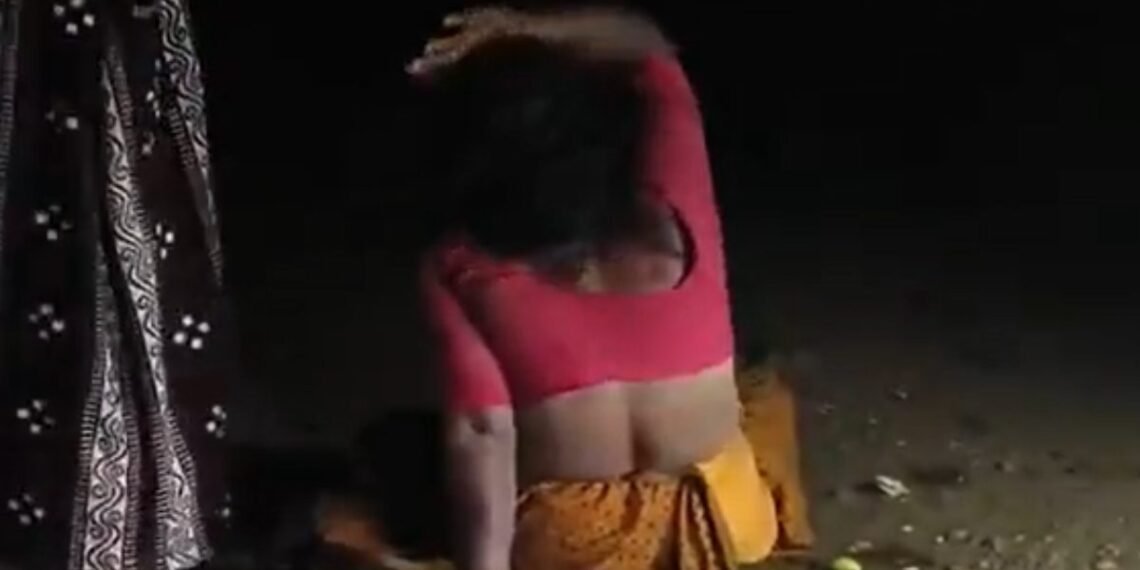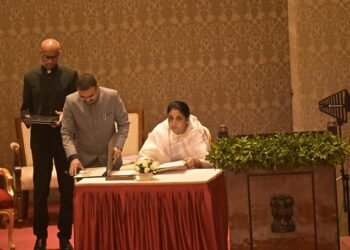A mother killed in the name of exorcism in Karnataka. A family burnt alive in Bihar. These tragedies underscore the urgent need to confront deep-rooted belief systems with law and awareness.
BY PC Bureau
India has been shaken by a series of chilling, superstition-driven killings across four states—Karnataka, Bihar, Uttar Pradesh, and Andhra Pradesh—exposing once again the deadly grip of blind faith, mob violence, and occult practices in rural regions.
From a woman tied to a cot and bludgeoned to death by relatives during an exorcism ritual in Karnataka, to five members of a tribal family in Bihar burnt alive over suspicions of witchcraft, the past week has seen a disturbing spike in violence rooted in superstition. In Uttar Pradesh, villagers killed a man believed to be possessed, while in Andhra Pradesh, a 24-year-old epileptic man was beaten to death by his own parents during a brutal cleansing ritual. These cases, spread across diverse geographies, underscore a common thread: the continued failure to address deep-seated ignorance, lack of mental health awareness, and the absence of institutional intervention in remote communities. Despite decades of development and awareness campaigns, faith-healers and witch-hunters continue to hold sway over vulnerable populations, often with lethal consequences.
READ: The Mate Case (Part 5): Why SC Must Go for UAPA Bail Reform
Karnataka: Mother Killed in Midnight Exorcism
In the most recent incident, 55-year-old Geetamma was brutally beaten to death on Monday night in Karnataka’s Shivamogga district. Her own son, Sanjay, allegedly sought the help of a local woman named Asha—who claimed to have powers to expel evil spirits. Along with her husband Santosh, Asha performed what she called a “ritual” that escalated into a four-hour assault, captured on video.
Shocking!
A 45-year-old woman died after an alleged exorcism ritual in Jambaragatte village, Holehonnuru, near #Shivamogga. Police say she was beaten from 9 pm to 1.30 am by woman who claimed to be a healer capable of casting out demons. The police arrested the accused. pic.twitter.com/IAGKRGnQmC
— Marx Tejaswi | ಮಾರ್ಕ್ಸ್ ತೇಜಸ್ವಿ (@_marxtejaswi) July 7, 2025
The disturbing footage shows a dazed Geetamma as Asha circles a lemon around her head, hits her with it, splits it, and rubs it into her hair. Soon, the blows turn violent—Asha slaps the elderly woman repeatedly, yanks her hair, and strikes her with a stick as Geetamma struggles to defend herself.
The assault reportedly continued from 9:30 p.m. to 1:00 a.m., after which Geetamma succumbed to her injuries. All three accused—Sanjay, Asha, and Santosh—have been arrested, and a murder case has been filed.
Bihar: Entire Tribal Family Burnt Alive Over Witchcraft Allegation
Just days earlier, in Purnia district of Bihar, five members of a tribal family were set ablaze by a mob of around 50 people on suspicion of witchcraft. The attackers stormed the home of Sita Devi late on Sunday night, accused her of practising black magic, and began thrashing her family before setting them on fire. The charred bodies were later found hidden under water hyacinth.
READ: Amarnath Yatra Crosses 1 Lakh Mark in Under One week
Only one survivor, 16-year-old Sonu Kumar, lived to tell the tale. “They beat us, then poured petrol and set everyone on fire,” he said. “I was lucky to escape.”
Uttar Pradesh: Childless Woman Dies in Tantrik’s Hands
In Uttar Pradesh’s Azamgarh district, a woman’s longing for motherhood ended in tragedy. Anuradha, 35, had remained childless for a decade after marriage. On the suggestion of relatives, she was taken to a self-styled ‘tantrik’ named Chandu in Harijan Basti.
Chandu allegedly promised to “cure” her infertility for ₹1 lakh—₹22,000 was paid upfront. But during the so-called ritual in Pahelwanpur village, Anuradha died from what police have described as a brutal and botched exorcism. The accused has been arrested, and police have deployed forces in the area to prevent unrest.
Andhra Pradesh: Epileptic Man Beaten to Death
Earlier on July 1 in Kurnool district, Andhra Pradesh, 24-year-old Naresh—who had epilepsy—was killed during a violent exorcism. Believing their son was possessed, his parents tied him up and called a local man claiming to drive out spirits. Naresh was beaten with sticks in his own home. Though villagers eventually rushed him to a hospital, it was too late.
These four gruesome incidents in rapid succession have sparked national outrage and renewed calls for stronger laws and social reform to combat witch-hunting, occult practices, and vigilante violence—deeply embedded in parts of rural India. Despite state-level laws to curb such acts, victims—often women, tribals, and the mentally ill—continue to fall prey to deadly superstitions.
As police make arrests and communities mourn, the deeper question remains: how long will India allow blind faith to claim lives?
Superstition, Misogyny, and the Rule of Law
These are not isolated events. They are part of a wider pattern of gendered violence and caste-based targeting that uses superstition as a cover for punishing the vulnerable—especially women. According to the National Crime Records Bureau (NCRB), at least 1,300 people were killed in witch-hunting or occult-related violence over the past two decades, with an overwhelming majority of the victims being women, Dalits, Adivasis, and migrants.
Despite laws in several states—including Bihar, Jharkhand, Odisha, and Karnataka—that ban witch-hunting and black magic, convictions remain rare, and awareness is low. In most cases, local authorities dismiss such crimes as “family disputes” or “mob misunderstandings.” Survivors and victims’ families face threats, social boycott, and in some cases, retaliatory violence.
Time for National Reform
India does not have a central anti-superstition law. Activists have long called for one, especially after the assassination of Dr. Narendra Dabholkar in 2013, who led a campaign for scientific temper and the eradication of blind faith. Dabholkar’s proposed Anti-Superstition and Black Magic Bill has yet to be implemented nationally.
The three exorcism-linked deaths in one week underline the urgency for national legislation, education reform, and grassroots awareness campaigns. Experts emphasize the need to combine legal penalties with community outreach to dismantle deeply held beliefs that sanctify violence, particularly against women.
Conclusion: In the Name of Faith, Injustice Reigns
Geetamma was beaten to death by those she trusted. Sita Devi and her family were burned alive for illnesses they didn’t cause. Anuradha died yearning for motherhood in a society that made it her only worth. These are not just tragedies—they are indictments of how superstition, when unchecked, becomes a tool for oppression.
India cannot afford to ignore these cries for help, muffled beneath the chants of exorcists and the flames of prejudice. Justice must not only be punitive—it must be transformative.













